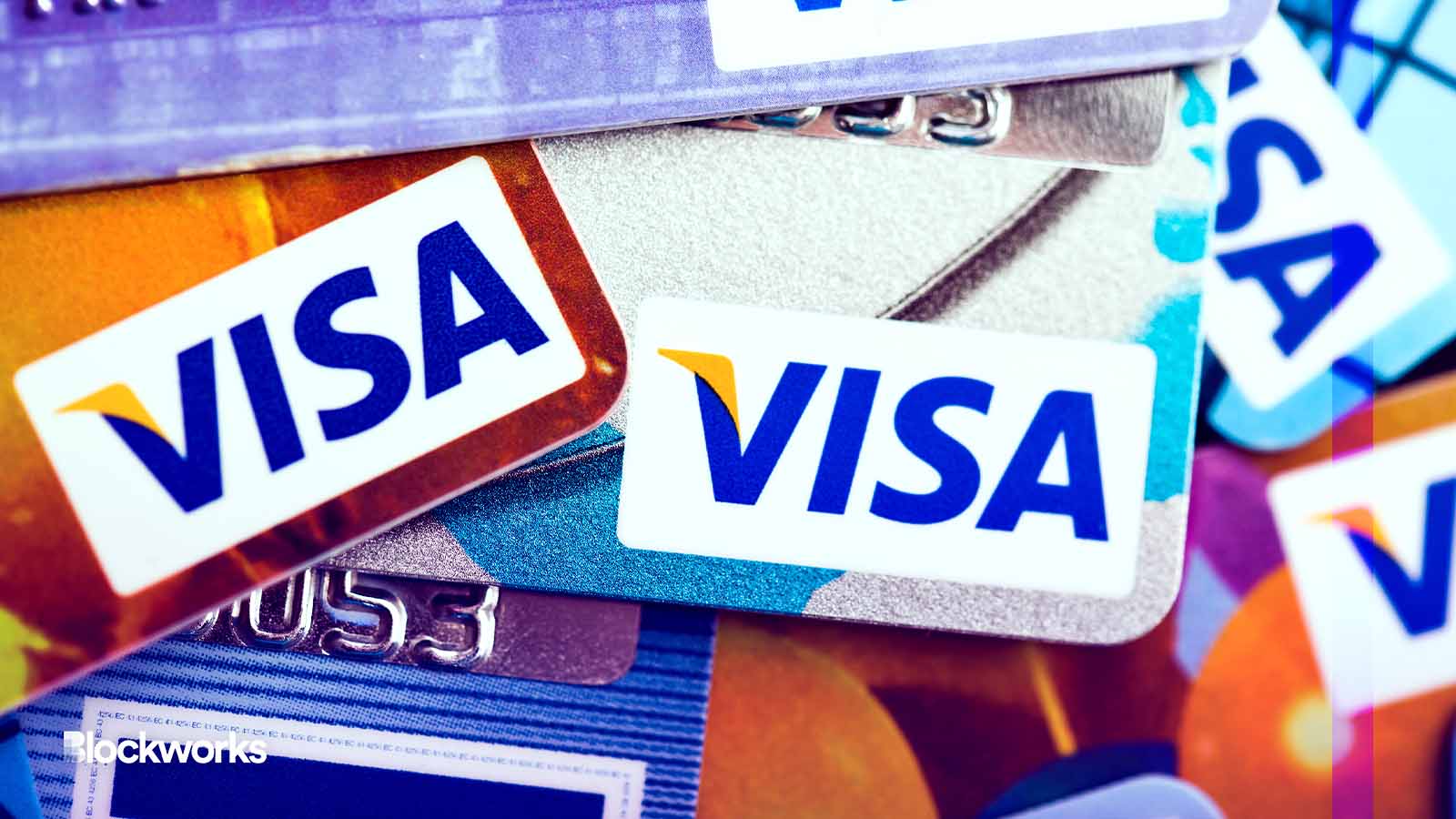Visa’s crypto stablecoin settlement expands to Solana
Payment giant now uses the Solana blockchain as part of USDC-focused pilots with merchant acquirers Worldpay and Nuvei

Valeri Luzina/Shutterstock modified by Blockworks
Visa is now allowing its partners to send or receive USDC settlement payments via the Solana blockchain as it has begun working with new merchant banks, the company revealed Tuesday.
As part of the stablecoin settlement expansion, the payments giant can now send USDC-denominated payouts to Worldpay and Nuvei through Visa’s Circle Account. Worldpay and Nuvei can then route these payments in USDC to their end merchants.
Visa enables the clearing, settlement and movement of billions of dollars a day, Visa Crypto Head Cuy Sheffield said in a post on X (formerly Twitter). The company must make sure the preferred currency is received in the correct amount from the issuer and sent to the merchant’s bank.
This process occurs across about 25 currencies between roughly 15,000 financial institutions, according to Visa.
Visa began testing how it could use USD Coin (USDC) within its treasury operations in 2021. It did a pilot with Crypto.com, an exchange that now uses USDC to fulfill its settlement obligations on the Visa card in Australia.
“This enables a modern and convenient option for crypto native issuers to more easily manage their card programs helping reduce the time and complexity of managing multiple bank accounts and international wire transfers,” Sheffield said in the X thread.
By now testing the use of Visa’s Circle account to conduct settlement payments on Solana to Worldpay and Nuvei, the company can now speed up settlement times for their merchants, it said.
“Worldpay and Nuvei enable card acceptance for a diverse set of merchants across the world including a growing number of merchants interacting with the blockchain and crypto economy who may prefer to use USDC within their corporate treasuries over traditional fiat banking,” Sheffield added.
The new pilots come a few months after Visa had sought out crypto developers to advance adoption of public blockchain networks and stablecoin payments.
A company spokesperson had told Blockworks in February that failures in the crypto industry would not change its strategy of being a bridge between traditional finance customers and the cryptocurrency ecosystem.
Get the news in your inbox. Explore Blockworks newsletters:
- The Breakdown: Decoding crypto and the markets. Daily.
- 0xResearch: Alpha in your inbox. Think like an analyst.






